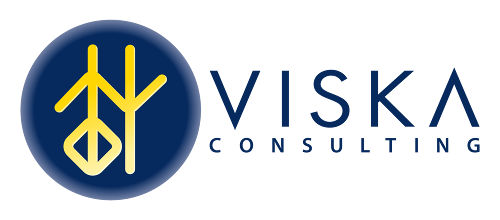The power of a company’s brand extends far beyond its products or services; it encapsulates the essence of the organization’s culture, values, and vision. This branding is not just a tool for marketing but a fundamental element in attracting and retaining top talent. My engagement with the HALO accelerator program, under the guidance of the amazing Rob Nicoletti, brought this reality into sharper focus. HALO’s holistic approach addresses six critical business challenges – Recognition, Relationships, Reputation, Recruitment, Retention, and Revenue. It’s the synergy between Recognition, Recruitment, and Retention, particularly how a company’s brand – its Recognition – plays a pivotal role in both Recruitment and Retention that we will look at here. This was brought back to the front of my mind recently when I spoke with HR branding expert Amy Pagett at HR Insight Consulting. Amy provided her wisdom and expertise to this article as well.
The Magnetism of a Strong Brand: Attracting Talent
A company’s brand is often the primary interface between the business and potential employees. It’s akin to a first impression, setting the stage for the relationship that follows. A strong and positive brand image becomes a magnet for talent in a marketplace brimming with opportunities. Candidates are drawn not only to the potential of a job position but to the allure of being associated with a brand that resonates with their values and aspirations. Utilization of platforms like Glassdoor and Indeed as vehicles for execution of that strategy is critical. According to Glassdoor, 86% of employees and job seekers research company reviews and ratings to decide where to apply for a new position.
The importance of a well-articulated brand in recruitment is a recurring theme. A robust brand narrative doesn’t just fill positions; it attracts individuals who align with the company’s ethos and vision and those who are likely to become long-term assets. This isn’t about the superficial aspects of branding but about how a company authentically presents its culture, mission, and values to the world.
For instance, consider how major tech companies have become synonymous with innovation and a forward-thinking culture. This reputation isn’t merely about their products but about an image carefully crafted and communicated. It’s an image that promises potential employees a chance to be part of something impactful and forward-moving.
In recruitment, leveraging a company’s brand goes beyond listing job perks and benefits. It involves a strategic presentation of the company’s mission, culture, and opportunities for growth and development. It’s about painting a vivid picture of life within the organization and how each role contributes to the broader vision and goals. When done effectively, Randstad, a leader in employer branding research, reports company’s experience 1-2x faster time to hire than those with a weak employer brand. The brand narrative becomes a powerful tool in not just attracting talent but in attracting the right talent – individuals who are not just capable but are aligned with the company’s vision and likely to remain committed over time.
Building a Relationship: The Role of Brand in Retention
The impact of a strong brand extends far beyond the recruitment phase; it plays a crucial role in retaining talent. In the current job market, where opportunities abound, keeping employees engaged and committed is as challenging as attracting them. This is where the brand’s promise, communicated during recruitment, must align with the actual employee experience.
Think about how a company’s brand serves as a beacon for its values and culture, setting expectations for potential recruits. When these expectations are met consistently, it fosters a sense of trust and loyalty among employees. For example, a brand that champions innovation should reflect this in its daily operations, offering employees opportunities to engage in creative problem-solving and continuous learning. This alignment between brand promise and workplace reality is essential in cultivating a workplace environment where employees feel valued and connected to the larger mission, significantly reducing turnover rates.
However, a disconnect between the brand portrayed to potential recruits and the actual working environment can lead to dissatisfaction and a high turnover rate. In our discussions at HALO, we emphasized the importance of authenticity in branding – a brand should truly reflect the company’s culture and values. According to Randstad, a leader in employer branding research, 76% of employees who experience a strong alignment between what their employer says about itself and their experience working there are more likely to recommend their employer as a place to work. Employees need to understand and get behind the brand they were sold on; otherwise, the company risks a credibility gap that can be hard to bridge.
Creating Ambassadors: Branding Beyond the Workplace
A truly successful brand strategy doesn’t just stop at recruitment and retention; it transforms satisfied employees into brand ambassadors. Employees who believe in the company’s brand and feel aligned with its values are likely to share their positive experiences, both online and offline. This organic advocacy is invaluable in enhancing the company’s reputation, creating a virtuous cycle that further attracts talent and reinforces employee loyalty.
Employees often share their experiences and enthusiasm for the workplace on social media, casual conversations, and industry events, thus becoming a powerful recruitment tool. It is not uncommon to see a new employee post pictures of their new employee welcome package on social media. Their testimonials, more credible than any corporate advertising, add a layer of authenticity and trust to the company’s image.
This phenomenon underscores the fact that a company’s brand is not just a marketing tool but a living, breathing aspect of its operations, deeply entwined with its human capital strategy. Employees who resonate with their company’s brand are likely to stay longer, work with more dedication, and become active participants in furthering the company’s reputation and appeal.
Navigating Brand Challenges in Recruitment and Retention
Despite the clear benefits of a strong brand, challenges abound, particularly when the external brand image doesn’t align with the internal reality. A gap between what a brand promises and what employees experience can lead to disillusionment and increased turnover.
One key approach is regular internal assessments and feedback loops. Understanding employee perceptions and experiences helps align the brand promise with the workplace environment. When discrepancies arise, they should be addressed promptly and effectively. For instance, if a company prides itself on being employee-centric but receives feedback about inadequate work-life balance, it must take steps to realign its practices with its proclaimed values. This not only aids in retention but also strengthens the brand’s authenticity, making it more attractive to prospective employees.
Furthermore, in the age of social media, a negative experience can quickly escalate into a public relations issue, affecting both recruitment and retention. Data also suggests that there is an impact to customer behavior as well – according to CareerArc, 64% of consumers have stopped purchasing from a brand after hearing news about poor employee treatment. In the same study, Millennial employees were 30% more likely than Gen-Xers and 60% more likely than Baby Boomers to stop purchasing or promoting an employer’s products due to a poor employee experience. Employers should note that their future workforce is heavily influenced by employer brand messaging and management. Proactive brand management, therefore, involves monitoring and actively engaging with employee feedback, both internally and in the public domain.
Strategies for Strengthening Your Brand for Recruitment and Retention
The culmination of our discussions at HALO centered on actionable strategies to harness the power of branding in recruitment and retention. Key among these is the development of a clear, authentic brand narrative that resonates with both current and potential employees. This narrative should be rooted in the company’s core values and culture and communicated consistently across all platforms and touchpoints.
Another strategy is to engage employees in the brand-building process. This can be achieved through initiatives like internal brand ambassadors or employee-driven content, which reinforces the brand internally and extends its reach externally. Employees who feel a part of the brand story are more likely to stay committed and actively contribute to the company’s success.
Regular training and development opportunities aligned with the brand’s values also play a crucial role. They demonstrate the company’s commitment to its employees’ growth and well-being, reinforcing the brand’s promise and further boosting retention.
Understanding the needs and expectations of the future workforce is key to understanding how to attract and retain talent. A diverse and inclusive work environment, a company committed to contributing to its community in a meaningful way, progressive strategies to positively impacting the environment – companies who embrace these values that are essential for the Millennial and GenZ working populations will secure business sustainability in a competitive talent market.
Conclusion:
If branding, recruitment, and retention have not been subjects that have crossed your mind lately, hopefully, this has illuminated the multifaceted role of branding in the realms of recruitment and retention. A robust, authentic brand is a powerful tool in attracting and retaining top talent. It sets the tone for the employee experience and fosters a strong sense of loyalty and commitment when aligned with the company’s internal culture and values.
Investing in and nurturing a strong brand should be a top priority for companies looking to thrive in today’s competitive landscape. It’s not just about external perception but about creating a harmonious internal environment that resonates with the brand’s promise. As leaders and business owners, our task is to ensure that our brand authentically reflects our mission and values, becoming a beacon that attracts and retains the best talent.
By: Chris Love and Amy Pagett
Elevate Your Business with VISKA Consulting
In today’s dynamic business environment, understanding and effectively leveraging your brand is more crucial than ever. At VISKA Consulting, we specialize in transforming this understanding into tangible results for your business. Our expertise lies in not just hearing but truly listening to your people, addressing their needs, and aligning your brand strategy with your company’s core values and culture. We believe that an engaged and well-understood workforce is the key to heightened productivity, enhanced employee retention, and ultimately, increased profitability. Let us partner with you to create an environment where your employees feel valued and heard, and your brand resonates with authenticity and purpose. Reach out to VISKA Consulting today to embark on a journey towards a stronger brand and a more prosperous business future.

